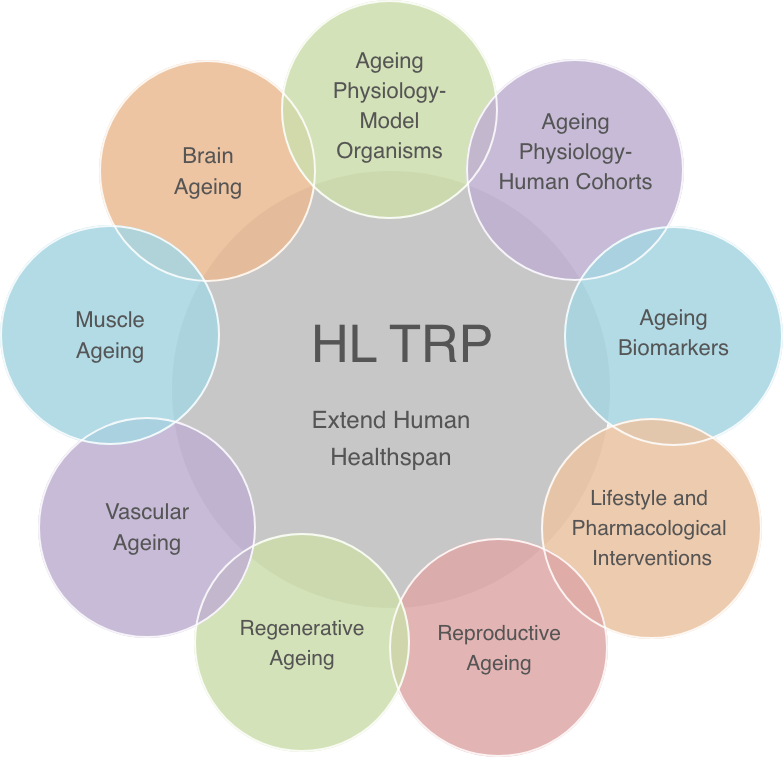Overview
Transforming the way we age
"We investigate how and why we age so we can change the narrative on ageing"
The NUS Healthy Longevity Translational Research Programme (HLTRP) combines the talents of scientists and clinicians from a broad range of disciplines to investigate the multi-faceted aspects of ageing.
We harness synergies between basic and clinical science to develop a comprehensive understanding on the biology of ageing. This enables us to translate our discoveries into real-world solutions that can improve the health span and lifespan of the silver generation.
How we started
Launched in July 2020, the NUS Yong Loo Lin School of Medicine’s Translational Research Programmes aim to translate scientific innovations into health gains. The TRPs provide a strong scientific platform to build a talent pool of world-class scientists, attract research funding and deliver impactful research outcomes for Singapore’s health system.
Leading the research efforts for the Healthy Longevity Translational Research Programme (HLTRP) are Programme Director Professor Brian Kennedy and Deputy Programme Director Professor Christopher Chen Li-Hsian.
In April 2021, the HLTRP was officially formed with 38 primary members and 21 secondary members. Starting with 3 main themes (Biology of Ageing, Brain Ageing and Vascular Ageing) and 7 platforms, the programme structure has since expanded to encompass the following:

Where We Are Today
Our Research Interests
To support healthy living at an advanced age, we focus our research efforts on answering these clinically-relevant questions.
How can we measure biological ageing accurately?
Identify accurate biological ageing clocks covering:
- Genetic biomarkers
- Epigenetic biomarkers
- Proteomic biomarkers
- Metabolic biomarkers
- Other biomarkers
How can we successfully delay ageing and prolong
a healthy lifespan?
- Identify the mechanisms that regulate ageing
- Develop potential interventions covering both small molecules and lifestyle factors
- Study both systemic and tissue-specific ageing
- Study ageing-related diseases.
Our Strategy
- Focus on identifying, understanding and manipulating 2 to 3 common pathways that modulate ageing and seek methods for translation to humans
- Build on strengths in neural plasticity, neurodegenerative and neurological disorders
- Explore vascular and muscular ageing in greater depth
- Investigate healthy brain ageing using various animal models and in humans
